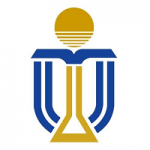项目介绍
The Doctor of Philosophy (PhD) Program aims at equipping the students with the capability of identifying and solving academic and/or real problems creatively. A candidate for a PhD degree is expected to demonstrate mastery of knowledge in the chosen discipline and to synthesize and create new knowledge, making an original and substantial contribution to the discipline.
On successful completion of the PhD program, graduates will be able to:
- Review, analyze, and interpret specialized topics in the scientific literature;
- Conduct high-impact research to solve the most fundamental problems in Mechanical Engineering;
- Professionally and ethically conduct scientific research/development in Mechanical Engineering;
- Actively seek to learn the most advanced methodologies and techniques;
- Design, implement, and evaluate state-of-the-art research to solve complex problems in Mechanical Engineering; and
- Work effectively with others as team members or leaders and make constructive contributions.
The program is offered by the Department of Mechanical and Aerospace Engineering with the following research foci, providing rigorous academic and professional training in a wide range of areas.
Research Foci
The Department’s research concentrates on energy and environmental engineering, mechanics and materials, mechatronics and manufacturing, and aeronautical engineering. Research covers several major areas:
Solid Mechanics and Dynamics
These are two of the fundamental pillars of Mechanics research. The Department has a diverse faculty with expertise in these fields. Research activities range from applied issues to theoretical problems, and have a marked multidisciplinary nature. They involve: applied mathematics, solid mechanics, nonlinear dynamics, computations, solid state physics, material science and experiments for various kinds of solid materials/ systems and mechanical behaviors. Faculty members work on problems of both static and dynamic natures with different types of evolutions. These problems also involve multi-field coupling on different scales of time and length, from micro-second to long time creep processes and from a very small carbon nanotube or a cell to macroscopic scale composite materials and electro-mechanical devices/ systems.
Materials Technology
Materials engineering focuses on characterizing and processing new materials, developing processes for controlling their properties and their economical production, generating engineering data necessary for design, and predicting the performance of products. Research topics include: smart materials, biomaterials, thin films, composites, fracture and fatigue, residual life assessment, materials issues in electronic packaging, materials recycling, plastics flow in injection molding, advanced powder processing, desktop manufacturing, and instrumentation and measurement techniques.
Energy/ Thermalfluids and Environment Engineering
Research in energy, thermalfluids and environmental engineering includes fuel cells and batteries, advanced renewable energy storage systems, thermoelectric materials and devices, nanoscale heat and mass transfer, transport in multicomponent and multiphase systems, innovative electronics cooling systems, energy efficient buildings, and contaminant transport in indoor environments.
Design and Manufacturing Automation
These elements lie at the heart of mechanical engineering in which engineers conceive, design, build, and test innovative solutions to “real world” problems. Research is being conducted in the areas of geometric modeling, intelligent design and manufacturing process optimization, in-process monitoring and control of manufacturing processes, servosystem control, robotics, mechatronics, prime-mover system control, sensor technology and measurement techniques, and bio-medical systems design and manufacturing.
Microsystems and Precision Engineering
Micro ElectroMechanical Systems (MEMS) is a multidisciplinary research field which has been making a great impact on our daily life, including various micro sensors used in personal electronics, transportation, communication, and biomedical diagnostics. Fundamental and applied research work is being conducted in this area. Basic micro/ nanomechanics, such as fluid and solid mechanics, heat transfer and materials problems unique to micro/nanomechanical systems are studied. New ideas to produce microsystems for energy, biomedicine and nanomaterials, micro sensors and micro actuators are explored. Technology issues related to the micro/ nanofabrication of these devices are being addressed.
Aerospace Engineering
Aerospace engineering is a major branch of engineering concerned with research, development, manufacture and operation of aircraft and spacecraft. Within the aerospace engineering group, fundamental and applied research is being conducted in areas such as aerodynamics, aeroacoustics, aircraft and engine noise and performance, combustion dynamics, thermoacoustics, atomization and sprays, and aircraft design and optimization. Advanced experimental facilities and high-fidelity computational methods are being developed and used. The group boasts two world-class anechoic wind tunnels for aerodynamics and aeroacoustics research, and is home to a major research center on aircraft noise technology.
To qualify for admission, applicants must meet all of the following requirements. Admission is selective and meeting these minimum requirements does not guarantee admission.1. General Admission Requirements of the University
- Applicants seeking admission to a master’s degree program should have obtained a bachelor’s degree from a recognized institution, or an approved equivalent qualification;
- Applicants seeking admission to a doctoral degree program should have obtained a bachelor’s degree with a proven record of outstanding performance from a recognized institution; or presented evidence of satisfactory work at the postgraduate level on a full-time basis for at least one year, or on a part-time basis for at least two years.
2. English Language Admission Requirements
Applicants have to fulfill English Language requirements with one of the following proficiency attainments:
- TOEFL-iBT: 80*
- TOEFL-pBT: 550
- TOEFL-Revised paper-delivered test: 60 (total scores for Reading, Listening and Writing sections)
- IELTS (Academic Module): Overall score: 6.5 and All sub-score: 5.5
* refers to the total score in one single attempt
Applicants are not required to present TOEFL or IELTS score if
- their first language is English, or
- they obtained the bachelor’s degree (or equivalent) from an institution where the medium of instruction was English.
联系方式
电话: +852 2358 8888相关项目推荐
KD博士实时收录全球顶尖院校的博士项目,总有一个项目等着你!




